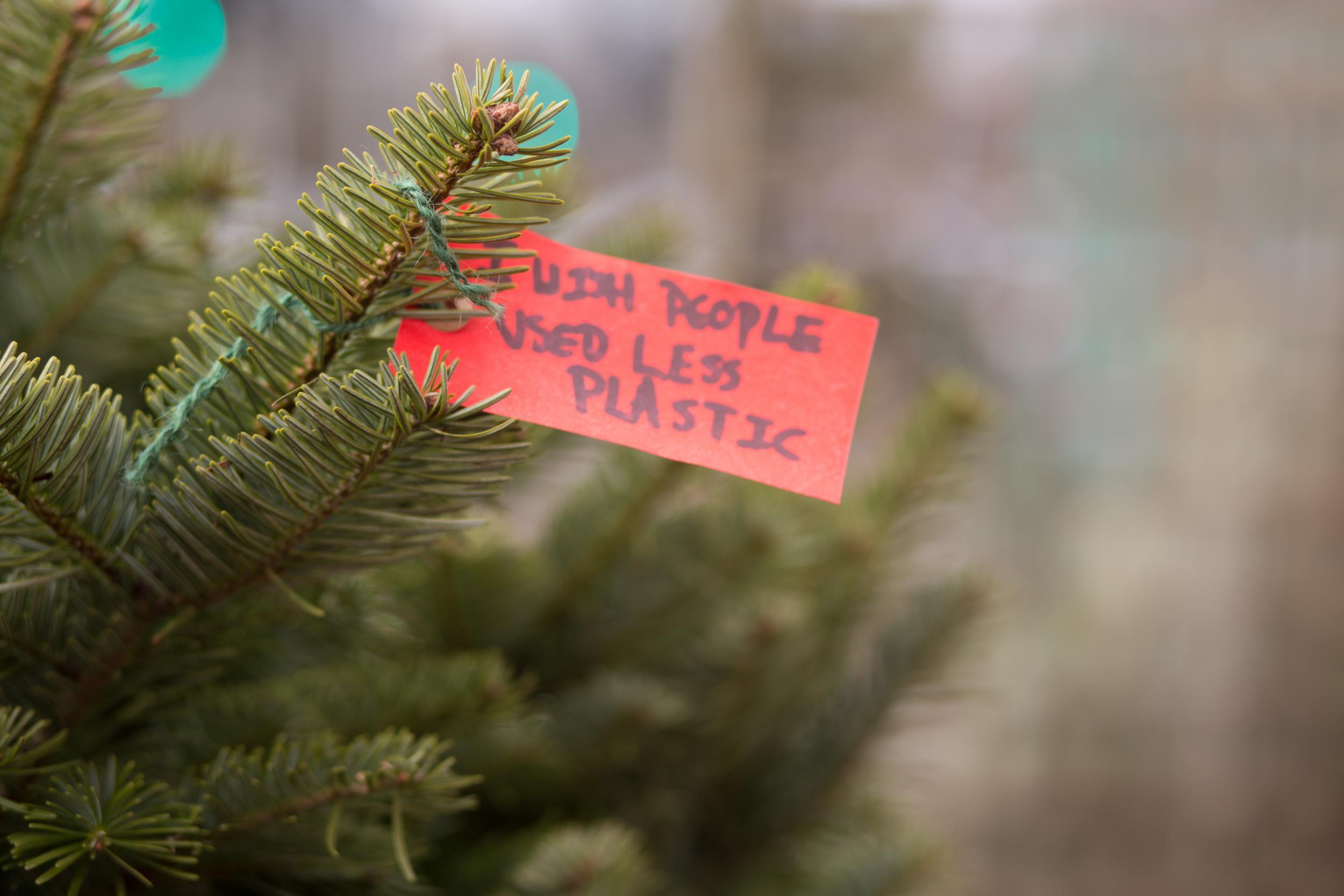The Independent's journalism is supported by our readers. When you purchase through links on our site, we may earn commission.
Have yourself an eco little Christmas
Brands are ditching the plastic and cutting back on waste to make this Yuletide sustainably merry and bright

Forget dreaming of a white Christmas, now its all about a green one. Up until recently, mass consumption and over-indulgence have been the hallmarks of the most wonderful time of the year. But the profound shift towards consumers seeking to reduce the use of plastic and minimise waste in general is driving brands and retailers to act.
This will be the last Christmas that John Lewis and Waitrose will sell crackers containing plastic toys. From next year all of their crackers will be replaced by new designs filled with items made from recyclable materials, such as metal and paper, to help combat the fact that household waste increases by an estimated 30 per cent over the festive season.
Another brand ditching the plastic is Christmas tree specialist Pines and Needles, who has banned artificial firs from all of its stores. This is the first year that the company will only supply natural firs, as well as live potted trees. Co-founder of the company Sam Lyle says “an artificial tree takes an estimated 500 years to degrade, so purchasing a live tree that can be replanted is much more environmentally-friendly”.
For customers who opt for a cut spruce Pines and Needles also offers a collection and recycling service, which allows thousands of Christmas trees to be repurposed into wood chippings for places such as Kew Gardens and London Zoo. According to The Carbon Trust, a tree’s carbon footprint is reduced by 80% if it is repurposed as opposed to if it is left to degrade. Rather than chucking yours on the pavement in the post-Christmas slump Sam advises checking your local council’s website to find out how their free recycling service operates.
Around six million real trees are sold in the UK each year, but there are also more eco-friendly ‘alternative’ trees available that are made from reclaimed wood. You can buy a faux spruce made of pallets on Etsy (who also happen to be the first global e-commerce company to offset 100% of carbon emissions generated by shipping), while Not on The High Street sells ones made from driftwood collected by British beachcombers - as well as one made of oak.
The pursuit of a more eco-conscious Christmas has seen searches for eco-friendly items on Etsy increase by 42% in the last six months, compared to the same time last year. Consumers are searching for upcycled, vintage and biodegradable items, whether that’s sustainably made decorations or greener gifts.
Alongside brands offering choices that avoid the landfill there is a burgeoning trend of teaching people how to re-purpose existing items. Christmas wreath making workshops using foraged foliage or recycled material, such as the ‘rag wreath’ workshop at London’s The Village Haberdashery, are available all over the country. You can also learn to make your own crackers using recycled paper and tissue, packed with eco-friendly trinkets, with The Crafty Hen company, who work nationwide.
When it comes to food waste, the statistics paint a far from merry picture. Each year in Britain the equivalent of four million Christmas dinners are wasted. That’s the equivalent to two million turkeys, 74 million mince pies and five million Christmas puddings. Meal-kit delivery companies have swept in to provide a solution for anyone seeking a zero-waste Yuletide. Gousto's Christmas recipes boxes have been specifically designed with enough ingredients to feel generous - no one wants to feel Scrooge’d when it comes to roast potatoes - yet precise to eliminate food waste.
Gousto also uses third party couriers to minimise environmental impact, rather than putting extra delivery vehicles on the road, as does HelloFresh, who also offer a full Christmas dinner box – and both have the added bonus of helping to take the stress out of festive cooking. Meanwhile another food delivery initiative called Oddbox supply households with surplus or ‘imperfect’ fruit and vegetables, simply and effectively boosting your planet-friendly credentials. The produce comes in at least 30 per cent cheaper than in supermarkets and helps prevent wonky parsnips and oversize carrots from being wasted.
Now that we know more about the pitiful state of our oceans, the excesses of Christmasses past might not feel so joyful. Individually and globally there has never been such appetite to minimise our impact on the environment. David Attenborough has suggested that we are only now beginning to make some changes to help protect our planet because of the paralysis in public life with Brexit. The climate movement might be one of tangible change but it’s worth us all remembering that sustainability is for life, not just for Christmas.
Subscribe to Independent Premium to bookmark this article
Want to bookmark your favourite articles and stories to read or reference later? Start your Independent Premium subscription today.

Join our commenting forum
Join thought-provoking conversations, follow other Independent readers and see their replies